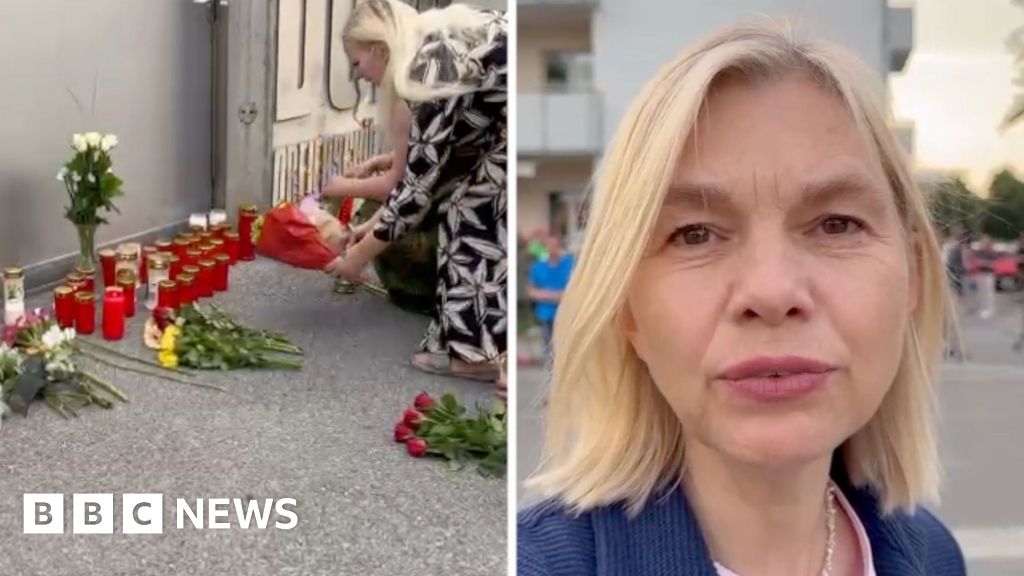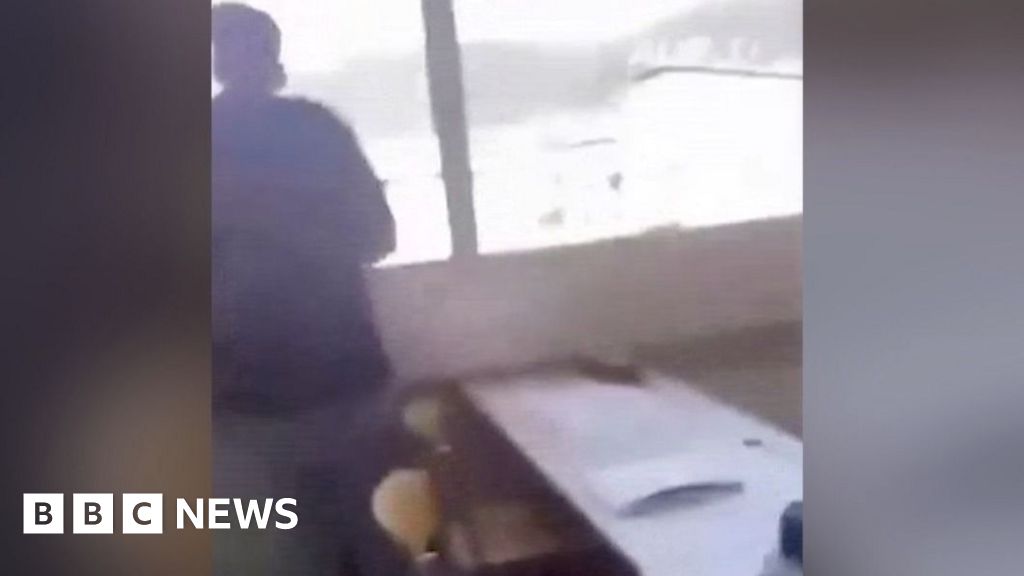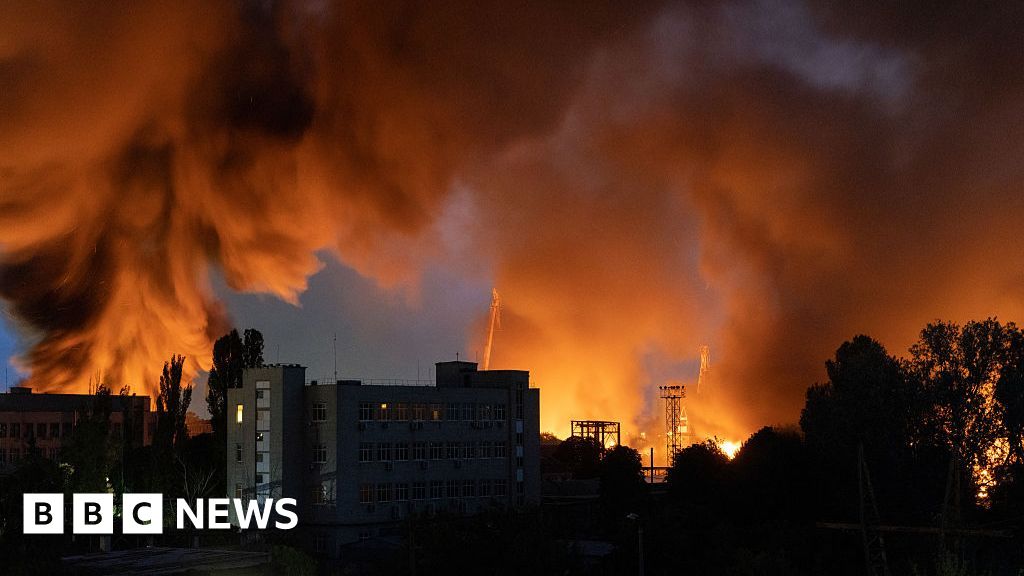ARTICLE AD BOX
By Riyaz Masroor
BBC Urdu, Srinagar
Image source, Getty Images
Image caption,Kashmir has been rocked by several protests against Indian rule
A controversy has erupted in Indian-administered Kashmir over a proposal to redraw the region's electoral map.
The draft proposes an increase in assembly seats that could raise the influence of the Hindu-dominated Jammu region in the disputed region's electoral politics.
Residents of the Muslim-dominated Kashmir valley fear this will reduce their say in choosing leaders. Mainstream political leaders say this could sound the death knell for pro-India politics in the region.
The latest move comes on the heels of various other measures that have increased the sense of alienation people in Muslim-majority Kashmir feel from the rest of India, which is overwhelmingly Hindu.
Relations between Kashmir and Delhi have been tense for decades but became worse after 2019 - when Narendra Modi's Hindu nationalist government stripped Jammu and Kashmir state of its special status and divided it into two federally-administered territories.
It also imposed restrictive measures, including a security crackdown and communication blockade that cut off the region from the world for several months.
An insurgency in Kashmir against Indian rule has claimed thousands of lives over the last three decades.
Kashmir is one of the world's most militarised zones, where alleged excesses committed by security forces against civilians have led to massive anger and resentment, regularly sparking huge protests.
What is the issue over constituencies?
The Jammu and Kashmir Delimitation Commission, headed by a former Supreme Court judge, has proposed six additional assembly seats for Jammu and only one more for the Kashmir valley - if passed, this would take their total tally to 43 and 47, respectively.
Image source, Getty Images
Image caption,Internet and phone lines were suspended for several months in Kashmir in 2019
Delimitation refers to redrawing the boundaries of assembly seats to represent changes in population over time.
It's a routine exercise to ensure that all constituencies, whether parliamentary or for state assemblies, have an almost equal number of voters.
The commission was set up in March 2020 and was extended earlier this year as work fell behind schedule due to the Covid-19 lockdown. They met politicians in Jammu and Kashmir to hear their views during the process.
The proposal comes in the wake of repeated assurances by Mr Modi's government that it will hold assembly elections in Jammu and Kashmir - the first since 2016 when the last government collapsed - once the exercise is completed.
The region is currently administered by a lieutenant governor who is directly appointed by Delhi.
But politicians in Kashmir have questioned why their region has been singled out for the process now when it's not due to take place across the rest of India until after 2026.
Why are the seat tallies being criticised?
In the last delimitation exercise in 1995, the Kashmir valley, which accounted for 56% of Jammu and Kashmir's population, had 55.4% representation in the state legislature. Jammu, with 43.8% of the population, had 44.6% representation.
So, Kashmir was allocated 46 seats and Jammu, 37.
Image source, Getty Images
The last census - which happened in 2011 - showed that Kashmir's population was higher than that of Jammu by 1.5 million.
Experts say that based on these figures, Kashmir's share of seats should have increased to 51, while Jammu should have been given 39 seats.
The commission hasn't yet revealed the methodology it used to arrive at the new numbers.
It has also proposed reserving 16 seats for candidates from scheduled castes and tribes, the most disadvantaged groups - experts say this will again work in Jammu's favour as the population of these groups is larger here.
Who are the critics?
Two former chief ministers of Jammu and Kashmir took to Twitter to criticise the commission's recommendations once they were made public.
"My apprehensions about the Delimitation Commission weren't misplaced. They want to pitch people against each other by ignoring the population census," wrote Mehbooba Mufti, who was chief minister from 2016 to 2018.
Image source, Getty Images
Image caption,Ms Mufti is the former chief minister of Jammu and Kashmir
Ms Mufti's Jammu and Kashmir People's Democratic Party (PDP) had refused to meet the federal commission, saying it believed the outcome of the exercise was "pre-planned".
Omar Abdullah, chief minister from 2009 to 2015, also called the recommendation "unacceptable".
"The distribution of newly created assembly constituencies with six going to Jammu and only one to Kashmir is not justified by the data of the 2011 census," he wrote on Twitter.
Sajad Lone, a former minister, told reporters that the exercise was a "shame".
"It's a slur on those people who are in graves because they took a bullet for India. There's no self-respect in this," he said, referring to politicians who had earlier advocated for Kashmir to peacefully remain a part of India.
When Mr Modi's government cracked down on Kashmir, pro-India politicians, including former state chief ministers, were detained under house arrest for months. This was seen as a betrayal by many of these leaders, who were often branded as "traitors" by their own people for siding with India during the 30-year insurgency.
Image source, Getty Images
Image caption,Even big parties such as the BJP had to ally with regional parties in Kashmir
Regional parties have always been more powerful in Jammu and Kashmir than national parties such as the current governing Bharatiya Janata Party (BJP) or the main opposition, Congress.
The Congress and BJP allied with regional parties such as the PDP and Mr Abdullah's National Conference (NC) to form previous governments.
A political commentator who spoke on condition of anonymity told the BBC that if the proposal was passed, it would make things even harder for regional parties from the Kashmir valley.
"The BJP wants to create a whole new political architecture where it won't need allies from Kashmir to form the next government. That would make pro-India mainstream politics in Kashmir insignificant," he said.
Who's supporting the proposal?
The local BJP unit has welcomed the commission's proposal.
"The process is transparent and the commission has made recommendations only after studying the ground realities in both Jammu as well as Kashmir regions," Jammu and Kashmir BJP president Ravinder Raina said.
And some, like Harsh Dev Singh, leader of the Jammu-based Panthers Party - which campaigned for years to remove Jammu and Kashmir's special status - feel Jammu deserves more than six additional seats.
Jammu-based freelance journalist Tarun Upadhyay says the new proposal will be welcomed by people in the region, who have always felt they were discriminated against.
"All these decades, people in Jammu had to protest for their rights. The power has always been tilted towards Kashmir," Mr Upadhyay said.
You might also be interested in:
Hear my voice: Kashmir's resistance music

 3 years ago
51
3 years ago
51








 English (US) ·
English (US) ·